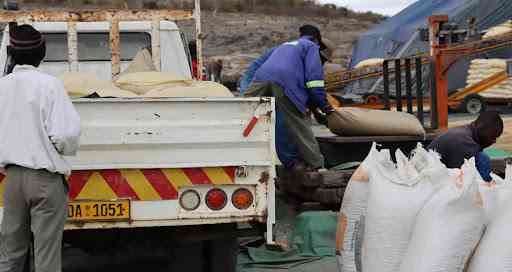THERE are indications of increased school attendance and reduced dropouts among schoolchildren affected by hunger in rural areas after the rollout of the school-feeding programme, unions have said.
Government recently introduced a school-feeding programme in response to the El Niño-induced drought after reports that learners were skipping lessons because of hunger.
President Emmerson Mnangagwa has declared the drought a state of national disaster and appealed for US$3 billion to help avert a humanitarian crisis in the country.
Zimbabwe National Union of School Heads secretary-general Munyaradzi Majoni yesterday said the school-feeding programme had come in handy in rural communities where food insecurity had been a barrier to education.
“Attendance of children has increased in schools,” Majoni said.
- Delta pays US$20m sugar tax in 9 months
- ‘Zim economy among the least free globally’
- Diamond workers launch strategic plan
- CBZ asset base rises 71% in Q3
- National Foods to explain shock VFEX delisting plan
“We can see this at Chibvumba Primary School in Mberengwa, where most children enjoy going to school because of the programme.
“The initiative has pushed the majority of children in the area to go to school. We have seen a significant increase in children going to school.”
Zimbabwe Rural Teachers Union president, Martin Chaburumunda said learners were missing lessons because of drought.
“Learners need food to concentrate well at school. This will decrease numbers of school dropouts and pass rates are likely to improve,” Chaburumunda said.
Government resumed the school-feeding programme when schools opened for the third term.
According to reports, approximately 27 000 tonnes of grain have been distributed to Grain Marketing Board depots for the school-feeding programme.
The recently released Zimbabwe Livelihoods Assessment Report showed that nationally, only 7,5% of children received a hot meal at school.













